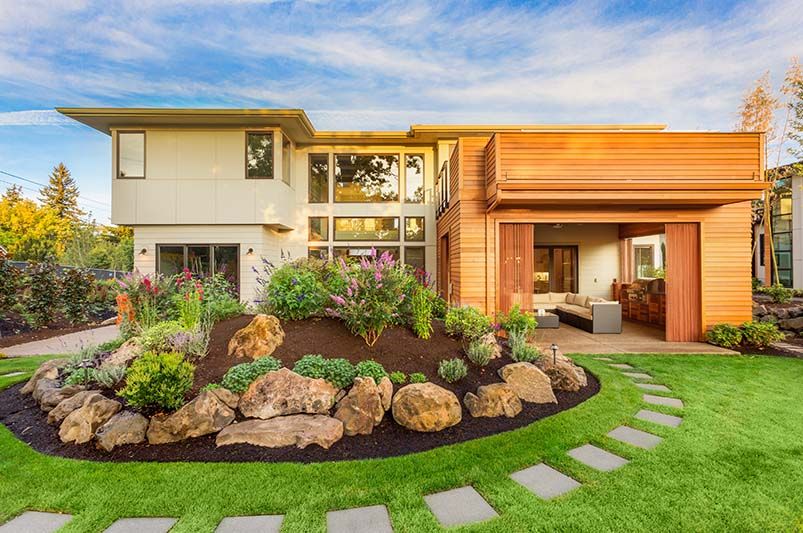The transformation of urban environments through professional Landscape Services represents more than mere aesthetic enhancement; it embodies a fundamental shift in how societies understand their relationship with nature, particularly evident in Singapore’s remarkable evolution from colonial port to “City in Nature.” This reveals how specialised landscape management has become essential urban infrastructure, as crucial as electricity or transport in determining quality of life within dense metropolitan environments.
The Historical Evolution of Landscape as Social Infrastructure
Contemporary landscape services emerged from recognising that green spaces function as critical components of urban resilience and human wellbeing rather than decorative elements. Singapore’s journey illustrates this transformation clearly. The government’s ambitious “80-80-80 in 2030” targets demonstrate unprecedented commitment to sustainable development, reflecting how landscape management evolved from a luxury service to an essential municipal function.
This shift represents a profound reimagining of urban priorities. Where previous generations viewed nature as something to be conquered, contemporary landscape services operate from the premise that human communities and natural systems must function as integrated wholes. The professional landscape service provider serves not merely as a gardener but as a mediator between development and conservation demands.
The Science and Art of Tropical Landscape Management
Singapore’s tropical climate presents a fascinating case study in how environmental conditions shape professional practice. “Singapore’s tropical climate, characterised by abundant rainfall and high humidity, fosters luxuriant vegetation growth”, creating opportunities and challenges demanding sophisticated technical expertise.
Professional landscape services in tropical environments must navigate complex ecological relationships. The relentless growing season means “Singapore’s tropical climate means gardens grow rapidly and can become overgrown quickly”, transforming maintenance from periodic intervention to continuous orchestration of natural processes.
Modern practitioners employ an arsenal of scientific approaches:
- Integrated Pest Management: Biological control methods that work with natural predator-prey relationships
- Water-Efficient Irrigation: “Installing efficient irrigation systems is crucial. These systems save water and ensure plants get the right moisture.
- Soil Health Monitoring: Regular assessment of pH levels, nutrient availability, and microbial activity
- Climate-Responsive Plant Selection: Species choices based on local growing conditions and maintenance requirements
The Economic Dimension: Landscape Services as Investment Strategy
What distinguishes contemporary landscape services from traditional gardening is recognising that green space management represents a sophisticated investment strategy rather than consumption expenditure. “Studies show that aesthetically pleasing and functional green spaces can enhance a property’s perceived value by up to 20%”, transforming landscape investment from aesthetic luxury to financial necessity.
This economic logic extends beyond individual property values to broader urban economics. Professional landscape services contribute to “positive externalities”, benefits extending beyond immediate clients to improve entire neighbourhoods. Well-managed green spaces reduce urban heat, improve air quality, and create social spaces, strengthening community bonds.
The most sophisticated landscape service providers understand these interconnections. They design and maintain spaces functioning simultaneously as property enhancement, environmental infrastructure, and social amenity, maximising investment returns across multiple dimensions.
Technology Integration in Modern Landscape Practice
Contemporary landscape services increasingly incorporate advanced technologies that would astonish previous practitioners. “Professional landscape maintenance teams in Singapore are always ahead of the curve. They employ efficient irrigation systems to conserve water and use smart technology for garden lighting and monitoring”.
These technological integrations include:
- Smart Irrigation Systems: Sensors that respond to soil moisture levels and weather forecasts
- Remote Monitoring: IoT devices that track plant health and environmental conditions
- LED Lighting Systems: Energy-efficient illumination that extends usability whilst reducing environmental impact
- Precision Fertilisation: Targeted nutrient delivery based on soil analysis and plant requirements
This technological sophistication reflects how landscape services evolved from labour-intensive craft to knowledge-intensive profession requiring expertise in horticulture, hydrology, soil science, and environmental engineering.
The Social Psychology of Managed Nature
Perhaps the most intriguing aspect of professional landscape services lies in their psychological and social functions. “In Singapore’s fast-paced urban environment, a well-maintained landscape offers a much-needed respite from the hustle and bustle of city life”. These spaces serve as psychological refuges where urban dwellers reconnect with natural rhythms that industrial civilisation often obscures.
Professional landscape services thus function as curators of human experience, crafting environments promoting mental health, social interaction, and emotional restoration. The most skilled practitioners understand their work operates simultaneously on aesthetic, ecological, and psychological levels, creating spaces satisfying complex human needs whilst supporting environmental sustainability.
Regulatory Frameworks and Professional Standards
Singapore’s approach to landscape service regulation illustrates how governments increasingly recognise green space management as critical urban infrastructure. Professional contractors must meet “BCA certification” requirements and demonstrate “sufficient financial resources to meet the financial commitments for the respective workhead and grade”.
These regulatory frameworks serve multiple functions beyond consumer protection. They establish professional standards elevating industry practice, ensure environmental compliance, and create accountability mechanisms protecting both clients and ecosystems. Requirements for technical qualifications and financial stability reflect how landscape services evolved from informal gardening to regulated professional practice.
Sustainability as Core Practice
Modern landscape services operate from the premise that sustainability represents a fundamental operating principle rather than an additional service offering. “Water conservation is vital in commercial landscape care. Efficient irrigation systems and rainwater harvesting cut down water use and environmental impact”.
This sustainability focus encompasses:
- Resource Conservation: Minimising water consumption, energy use, and waste generation
- Ecosystem Support: Creating habitats that support biodiversity and ecological health
- Carbon Sequestration: Plant selection and maintenance practices that maximise carbon storage
- Circular Resource Management: Composting, mulching, and other practices that create closed-loop systems
The Future Trajectory of Professional Landscape Management
As urban populations continue expanding globally, landscape services will assume greater importance in determining urban quality. Singapore’s experience suggests successful urban environments require sophisticated integration of natural and built systems, mediated by professional landscape management expertise.
The most successful landscape service providers understand their work within broader urban and environmental contexts, serving not merely individual clients but contributing to sustainable urban development. Professional Comprehensive Landscape Services represent an essential component of humanity’s adaptation to an urbanised, climate-changing world.








